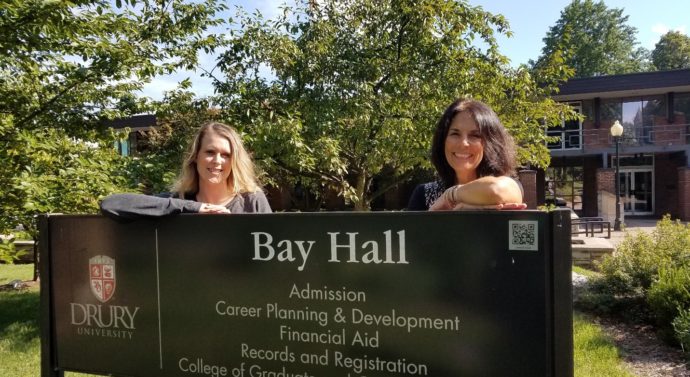
Why it’s okay not to have your life put together
Editorial September 7, 2018, Comments Off 117The following is an editorial in which all views, thoughts, or opinions belong solely to the author and do not necessarily represent those of the Drury Mirror.
It seems like the only questions a high school senior is asked are “Where are you going to college?” and “What are you going to major in?” While one of those questions has been answered, the other one could still be up in the air.
The Mirror met with Emily Buckmaster and Lisa Tessier of Drury’s Career Planning and Development office to find out how they help answer that question and more.
A starting point
Career Planning and Development is a resource available to all students. Their office is Bay Hall 148, and they can be reached by phone or by email. They can assist you with things like choosing the right major, putting together a resume or even getting an internship. Students are welcome to come in and talk to the staff about their goals. Buckmaster and Tessier have dozens of materials to guide students that have yet to decide on a major. One of their main resources for students is MyPlan.
“It basically looks at four different things – your career, your interests, your personality and your values and skills,” explained Buckmaster.
Another resource that they will soon be offering is “What Can I Do With This Major?” This is a tool that lists what people with a specific major often go on to do in the workforce. It divides the jobs by type and specialization. However, that is just the tip of the iceberg.
“I would say research and self-assessment would probably be the most important [in choosing a major or career]. Research kind of goes along with exploring,” said Buckmaster.
Research… and more research
Research and exploration are vital to what Career Planning and Development does. A great place to start is to just look through the catalog at what Drury offers, but they go farther than that.
They have pulled together massive amounts of data into a concise package that students can understand and use. They have the reach to connect students with the communities where their degrees would be most useful.
“We encourage students to do informational interviews, which is where you would sit down and talk to somebody about how they got started,” stated Buckmaster. “We can help get [students] connected.”
They also explained that majors are not always what students expect them to be. They see students who thought they knew what they wanted to do since kindergarten, but who now want to go in a completely different direction. They know how to help students find a major from a career or pick a career from a major.
“You can go at this from two different angles: academic areas you are interested in – choose your major and figure out what you want to do with that – or you might figure out what you want to be and work backwards,” said Tessier.
Never too late
But regardless of whether you’ve chosen a major or want to see what other options are out there, Career Planning and Development will have something to help you. They can provide unbiased support as you try to make one of the biggest decisions of your life.
“Don’t make an assumption that it’s too late to change. Seek out advice from us and your academic advisers about what can be done. And if you do find yourself really unhappy in a major, don’t just assume that ‘It’s my sophomore year, it’s too late’,” advised Tessier.
Don’t stick with a major or a career path that you don’t enjoy. You’ve chosen a liberal arts college, so you have the opportunity to explore. You don’t have to have your entire life planned out already; however, a great place to get started is Career Planning and Development.
Article written by: Afton Jagels